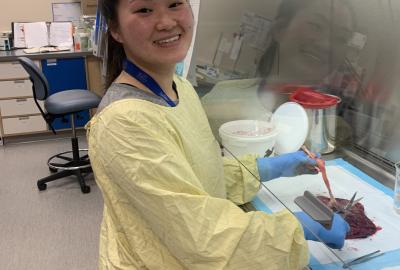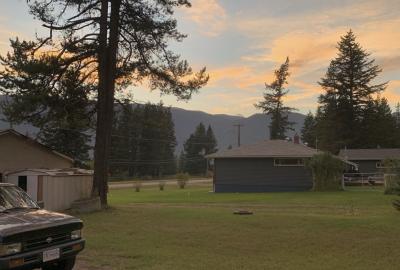
Do you have anything that you’ve always wanted to do – from baking to backpacking the wilderness to speaking in front of a crowd – but never muster up the courage to try? If you are even thinking about tackling a “first”, you may be ready to stretch yourself and do something new.
Researchers Luckner and Nadler, who study the experiential learning process, described that in order to acquire any new knowledge or skill, one must transition through the following zones:
-
Comfort Zone: “status quo” that one is familiar with
-
GROAN Zone: less familiar territory that brings anxiety as one is exposed to new things
-
Growth Zone: confidence in using the newly acquired knowledge or skill
Luckner and Nadler emphasized that people often experienced the “temptation” to step back to their comfort zone because the unfamiliar territory is just too overwhelming, and for some, even thinking about it wipes out any desire to even attempt it.
Trying things for the “first time” could also benefit your career. Any time you volunteer, take a part-time job, talk to a professional, attend workshops, you may find out a little bit more about yourself. For example, you might:
-
Discover what you “like” and “dislike”
-
Identify what you are capable of and what you can improve upon
-
Increase your ability in doing a certain task
-
Explore new ideas and experiences that clarify possible career choices
However, I cannot tell you how little I slept on the night before the first day of my first coop job because it was my first “real” job. In fact, I almost wanted to turn around and go home as soon as I stepped into the office building. The goal is that we want to travel through the “groan zone” without turning back and eventually arrive at the “growth zone” successfully. Whether you are just trying a small task for the first time, or attempting a significant mission, you can always “B.R.A.V.E. it out”:
Start off with BABY Steps
Before you cook for your extended family of twenty at the Christmas dinner, you may want to try cooking for your friend’s birthday dinner of four. Once you can handle the task in a smaller magnitude, you will feel more confident about scaling up the challenge.
Do your RESEARCH
Get some ideas of what you are about to engage in and what you can do to prepare for it. Fixing your own bike may be new to you, but many people have “cycled” that same path that you are about to journey onwards. Talk to people who have done it, search online for tips sheet and instructional videos, etc. By educating yourself on the task at hand, you are equipping yourself for success.
ACKNOWLEDGE Your Anxiety and Fear
Driving on a dark highway, when all you see is what’s in front of you, may increase your anxiety because you are concerned about safety. Your mind is simply sending you a signal to be alert and telling you to be cautious. It’s all part of a natural response as a human being. So simply acknowledge these emotions of fear and anxiety and move towards the new task at hand.
VISUALIZE the Experience
Even the most experienced performers have stage fright but some of them prepare by standing on the stage and staring at the empty seats prior to their shows. They visualize an “imaginary audience” staring at them and anticipate what it feels like. This mental image allows the performers to familiarize with the environment. If you can visualize what this first time experience would be like, it will tone down the “surprise” factor for your mind when the experience comes to a reality.
EMBRACE and ENJOY the Process of Trying
Are you expected to do everything perfectly the very first time? Certainly not! Every time a child falls when she/he learns to walk, she/he giggles and bounces right back up to try again. Just like a child masters the skill of walking, the information you gathered on the “first time”, regardless of the outcome, will contribute to a better result the second time. So why not embrace and enjoy the process, even giggle a little yourself, as you continue to improve on what you do.
Think about all the things that you have already mastered and enjoyed doing. There must have been a “first” time in each of those experiences. There are still many “firsts” waiting you. When will you embrace your next “first”?














